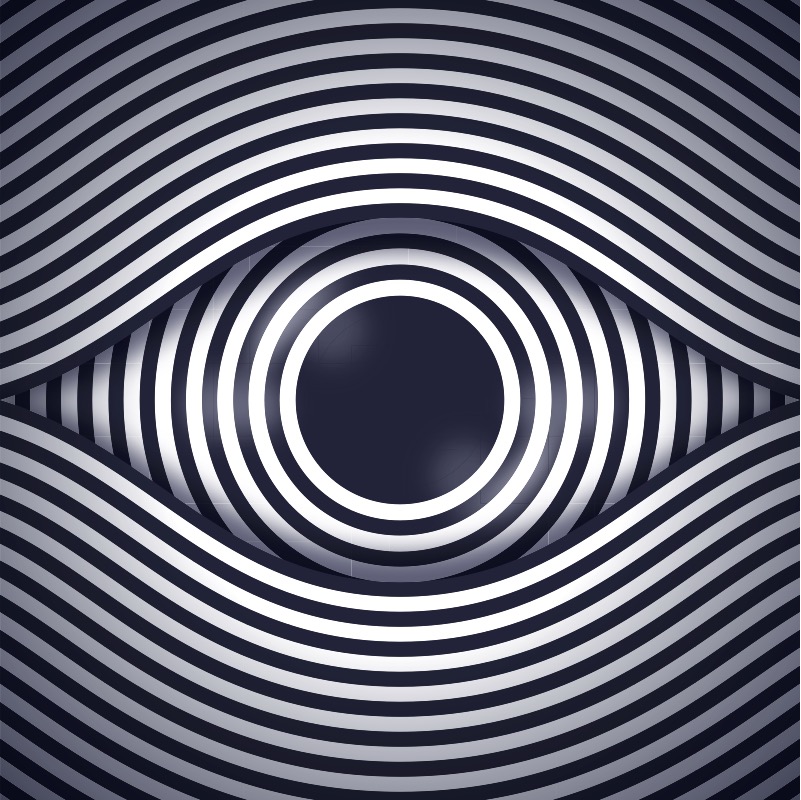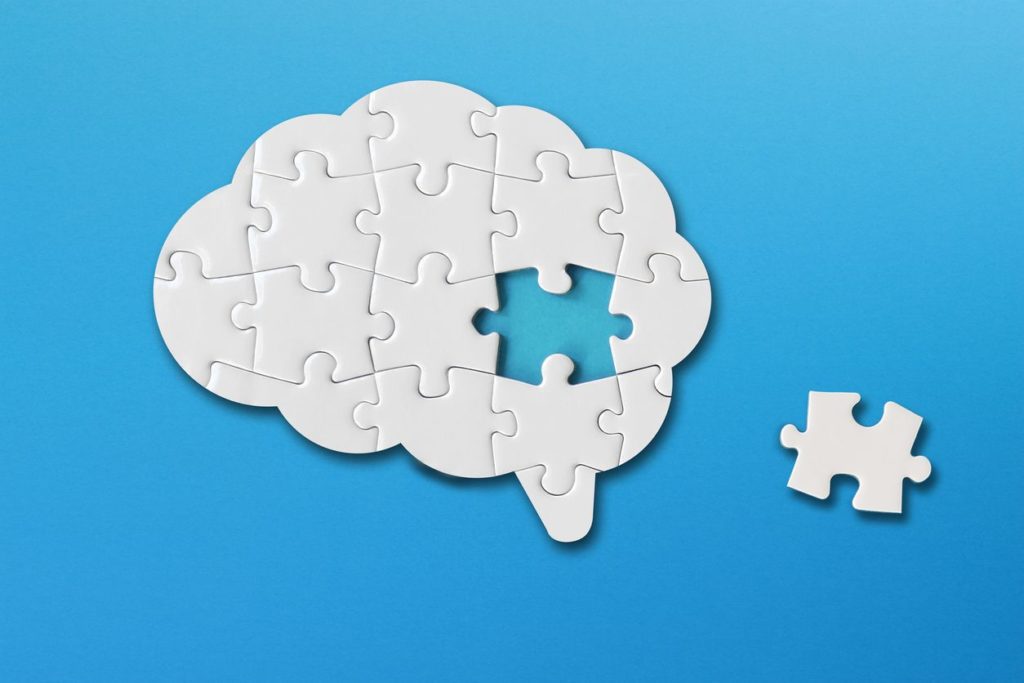
The Complete Guide to Insomnia
Updated on: December 2022

Insomnia is a sleeping disorder that affects your ability to fall asleep and then remain asleep. It affects millions of adult Americans, but as seniors age, the likelihood of developing increases as well. While about one-fourth to one-third of the adult population reports sleeping problems—whether they last for a short or long period of time—that number increases to more than 50 percent for adults age 65 and over.
One major problem with insomnia is often the awareness of the simplicity of treatment. Though often very treatable with lifestyle changes, it’s been reported that up to 60 percent of people who suffer from insomnia don’t talk about it or mention it to their doctors. So let’s take a look at what exactly insomnia is, its many forms, the root behind what causes it, and how we can treat it.
Find What You Need
Different Kinds of Insomnia
Insomnia does not have one singular root cause of form. Because of that, there are different categorizations of insomnia based on the reasons you have insomnia, how long you have it, and how often you suffer from it.
The two main forms of insomnia, based on what causes it, are:
Primary Insomnia
This form of insomnia means that you are simply having trouble sleeping, and doctors can’t chalk it up to any specific medical reason. This form may be a bit more complex to treat, as doctors may have to dive into your lifestyle and your own methods of falling asleep.
Secondary Insomnia
You have secondary insomnia when doctors can explain your sleep troubles with some form of medical reason, and the treatment for this insomnia starts with the medical issue. Some maladies that can cause secondary insomnia include cancer, depression, arthritis, addiction, and anxiety. The medication you’re taking can also affect your sleeping patterns.
There are also different classifications of insomnia based on how long and how often you have problems sleeping. These classifications are:
Acute Insomnia
This form occurs when the insomnia symptoms last for just days or a couple weeks at a time. The causes range from stress on the job to a frequent traveling schedule that impacts sleeping patterns
Chronic Insomnia
Chronic insomnia occurs when you have issues sleeping multiple times per week for a month or longer, according to the National Heart, Lung, and Blood Institute (NHLBI). Chronic insomnia is often associated with secondary insomnia, because health issues that last for months on end can fuel bouts with insomnia that last just as long.
All of these factors weigh into the medical issues that may arise from insomnia and how doctors will lay out a treatment plan, which is an important step in the diagnosing process.
What Causes Insomnia?
There are many reasons why one can’t fall or stay asleep. The issues can be related to your personal life, such as stress about work or family; or they can be strictly medical, like dire pain that just won’t go away.
The issue with non-medical causes of insomnia is doctors still can’t quite identify why these causes create sleeping issues. One study honed in on hyperarousal, though, as the main fuel for insomnia. Basically, your body is overstimulated throughout the day, thus causing a restlessness when it’s time to go to sleep. Actions like your mind jolting from one stress to another keep the brain functioning at a high speed, which in turn keeps you awake for hours on end. Then, the focus of your stress may transfer to not being able to sleep itself, causing another round of stress and an additional reason for your brain to remain aroused throughout the day and into the night.
Let’s take a look at some of the medical and non-medical reasons that may cause insomnia:
Stress
Essentially, stress causes your brain to overwork itself when you’re trying to sleep. The aforementioned hyperarousal study concluded that those who suffer from insomnia often have increased brain metabolism round-the-clock, not particularly making those sleepier during the day but rather less likely to fall asleep easier when it’s time to. Stress, according to the study, is often linked hand-in-hand with those diagnosed with chronic insomnia. Not only can stress cause you to lay awake at night and worry about life outside of sleep, insomniacs have been found to not be able to cope with stress as well as others because of issues associated with their personal relationships.
Depression
You are three times more likely to develop depression if you have persistent bouts of insomnia, WebMD points out. The relationship between insomnia and depression is very complex, but doctors have found that insomnia often exists just before patients start to suffer from bouts of depression. Consistent sleeping problems can fuel these bouts. One study that looked into the presence of hyperarousal in insomnia patients found that more than 80 percent of the patients who suffered from some form of insomnia had a mood disorder like anxiety or depression.
Chronic Pain
Pain doesn’t discriminate when it’s time to sleep—it still exists when you’re trying to get some shut eye. A 2015 sleep study found that just 36 percent of people with chronic pain reported getting good sleep and that those with chronic pain (arthritis, acid reflux, joint discomfort, etc.) lost an average of about 45 minutes of sleep per night due to their condition. More than 50 percent of seniors report having chronic pain, so this issue is a leading cause for insomnia among the elderly.
Chronic Illness
Not only can chronic pain from maladies like arthritis and joint pain fuel insomnia, severe illnesses like cancer or Alzheimer’s disease can keep you awake and cause you to wake up throughout the night as well. A study of more than 5,000 patients with a range of chronic illnesses found that more than 30 percent of patients “rarely” or “never” got a good night’s sleep because of their illness.
Medications
Though you may be given medication to eventually help treat insomnia, the irony is that there are medications that actually cause insomnia as a side effect. The AARP pointed out a list of medications—both prescription and over-the-counter—that can cause sleeplessness. These can include medications like: antidepressants, statins (for cholesterol), beta-blockers, and more. Many of these medications include caffeine or affect REM sleep, which is an important step in the sleep cycle that should be left uninterrupted.
Allergies
A study compared two groups of people: one with allergies and one group without, and compared the likelihood they had a sleeping disorder. In nearly every category, patients with allergies reported having trouble sleeping or staying asleep more than two times as frequently than those patients without allergies. Just as the allergies themselves can cause insomnia, medications used to treat allergies may have chemicals in them that keep you awake when you’re trying to suppress the allergies during sleep hours.
What are the Symptoms of Insomnia?
The symptoms for insomnia all center on the quality of sleep you’re getting, your ability to fall asleep, and how the whole sleep process affects the rest of your day. Given that this can vary widely from case to case, one insomniac may be able to fall asleep fine but then have a general poor quality of sleep. For instance, a Canadian study found that more than 30 percent of those who suffered from insomnia received the recommended seven to nine hours of sleep per night. This doesn’t mean that the quality of sleep was great or that they were able to sleep uninterrupted for the entire slumber—two signs of insomnia.
A study in 2007 detailing the prevalence and consequences from insomnia listed four main symptoms when it comes to the sleeping process: “difficulty initiating sleep, difficulty maintaining sleep, waking up too early, and in some cases, non-restorative or poor quality of sleep.” These symptoms only look at how you may be able to recognize insomnia during sleeping hours. There are symptoms present when you are trying to work and live the day.
Let’s take a look at all the symptoms of insomnia that occur throughout the day to get a better understanding of how the condition can affect your entire day.
Difficulty Falling Asleep
The first step in sleeping is being able to enter a slumber. One of the leading symptoms of insomnia is not being able to fall asleep in the first place. Though you may be able to stay asleep once you do fall asleep, the length it takes to fall asleep can affect the overall quality of sleep you get. For instance, if it takes you three hours to fall asleep into a planned eight-hour sleep, you only wind up sleeping for an unhealthy five hours, affecting performance the next day.
Difficulty Staying Asleep
One sign of healthy sleep is having a full seven to nine hours of uninterrupted sleep, meaning your body can rest and recharge without having to worry about falling asleep again. The lack of sleep then can cause other soon-to-be-discussed symptoms that occur during the day.
Daytime Sleepiness
This can affect performance at work, at home, and, most severely, on the road. The NHLBI points out that 20 percent of serious car crashes happen because of “driver sleepiness,” which is often caused by poor sleeping habits and insomnia.
Difficulty Focusing
Once you are awake, you may not be able to focus on a singular task at hand because you’re too tired from poor sleep the night before. The resulting stress can take your mind off tasks that you need to be focusing on, too.
Waking up Early
One contributor to insomnia is waking up much earlier than expected and not being able to fall back asleep. This can jumpstart being tired way earlier in the day than you normally do, which then throws off your sleep schedule.
Stressed Caused by Lack of Sleep
As we’ve seen, lack of sleep can cause issues throughout the day, whether it’s focusing on a task at work or feeling drowsy while driving. This can cause great stress in someone’s life, which in turn affects how they sleep. It’s a vicious cycle that needs to be addressed at its main source, which may be the stress in the first place.
Poor Quality of Sleep
You may be able to sleep overall for eight hours or so in a night, but it may take you 10 hours to do so. Waking up constantly throughout the night or waking up in pain because of the way you sleep can cause you to be tired throughout the day, which then affects how you fall asleep the next night.
You may not experience every single one of these symptoms, but even just two or three can indicate you have some form of insomnia, with how severe it is depending on how often these symptoms occur.
Issues Caused by Insomnia
Depression
As discussed earlier, the relationship between insomnia and depression is a complicated one. While depression can cause insomnia, the same is true when it’s flipped around: insomnia can cause depressive tendencies. This is rooted in how lack of sleep and lack of quality sleep affects your entire day after the affected sleep. Poor sleep across a continued amount of time can severely affect your overall quality of life.
In one study, nearly every subject (97 percent) reported having sleeping problems during depression and nearly 60 percent said that the poor sleep associated with their depression affected their overall quality of life. A low quality of life is a leading cause of depression. In another study of nearly 8,000 subjects, researchers found that, through interviewing subjects, 14 percent of those who reported having insomnia also had “major depression” a year later, and that’s not considering those who have at least had mild bouts of depression.
Heart Disease
While insomnia is reported in about 20% of medical patients, the American College of Cardiology notes that insomnia occurs in nearly half of cardiac patients. One link the ACC points out as a connection between insomnia and heart problems is that shorter amounts of sleep (less than six hours) helps predict higher blood pressure, which can then cause heart maladies.
Qiao He, a graduate student at China Medical University, combined 15 insomnia studies and looked at the effects insomnia had on patients when it related to heart problems.
Basically, subjects were more likely to experience heart diseases and heart problems if they had insomnia. While these are simply general connections and not deep dives into the medical reasonings behind the connections, the studies combined to more than 160,000 subjects, providing He the confidence of reporting the connections.
He continued, “Previous studies have shown that insomnia may change metabolism and endocrine function, increase sympathetic activation, raise blood pressure, and elevate levels of pro-inflammatory and inflammatory cytokines — all of which are risk factors for cardiovascular disease and stroke.” All of this information helps He make the connections between heart disease and insomnia.
Increased Alcohol Use
Studies have shown that, because of alcohol’s depressive and sedative properties, some people with insomnia have turned to alcohol to help them fall and stay asleep. Depending on alcohol to put you to sleep can turn into a dependence on it, and now you’re addicted—you can’t fall asleep without it. In one study, nearly 30 percent of those with insomnia said they used alcohol to help them fall asleep. Note: This is not a recommended treatment or method of curing insomnia.
Just as you may become addicted to alcohol, especially when it comes to needing it to sleep, you can also start to have poor sleep again if you stop drinking. Your body, which is used to being reinforced by alcohol, no longer has what it is used to for sleeping. The withdrawal itself can then trigger sleeping problems as your body starts exhibiting round-the-clock symptoms like nausea, shaking, vomiting, and anxiety.
Accidents
A study of insomnia patients revealed that you are two to fives times as likely to suffer from an accident at home, in the workplace, or on the road. In fact, in one study of more than 8,000 people conducted in France, eight percent of insomniac patients reported getting into a workplace accident as opposed to just one percent of non-insomniac patients.
The most dangerous statistic is what insomnia can do when you’re traveling on the road, typically when you’re most at risk of harming someone else. In a 2013 study, nine percent of insomnia patients reported falling asleep at the wheel before and more than four percent of those with insomnia said they’ve gotten into a car accident because of their sleeping problems. This is why insomnia—something that’s easily identifiable and treatable—is so important to address.
Why are Seniors at a Greater Risk of Suffering from Insomnia?
As we’ve discussed in previous sections, there is a wide range of causes for acute and chronic insomnia, from stress levels to chronic injuries. Seniors should be especially aware of these causes, as many of them are fueled by age. As people get older, they are more likely to have the presence of something that fuels insomniac tendencies.
Often, seniors who suffer from insomnia also suffer from another sleeping disorder that helps aid the prevalence and severity of the insomnia. Some of these other sleeping disorders include:
- Sleep apnea and other breathing-related sleep disorders
- Restless leg syndrome
- Rapid Eye Movement sleep behavior disorder
A study published in 2006 looked at how much having a chronic illness plays into the severity of the insomnia an older person suffers from. About 80 percent of adults 60 and over are reported to have at least one chronic illness. Also, one study says that “insomnia as a feature of chronic disease tends to be more severe and persistent than insomnia that does not occur in the context of chronic illness,” essentially revealing that the presence of chronic illness makes insomnia worse.
Pair the high presence of chronic illness among the elderly with the increased severity of insomnia when a chronic illness is present, and you get a lot of seniors who may potentially suffer from chronic insomnia.
As mentioned in the introduction, more than 50 percent of seniors report having sleep issues, meaning that about 25 million seniors suffer from some form of insomnia, based on 2016 demographic information. It’s necessary that seniors find the help they need for insomnia so chronic illnesses like cancer, Alzheimer’s disease, and heart disease—which are the leading killers in the United States—don’t worsen simply because of a lack of sleep.
How to Treat Insomnia
The treatment for insomnia goes back to the root cause of your sleeping problems. If your insomnia is fueled by a medical condition, you probably won’t take the same route in addressing sleeping issues the same way you would, say, if you’ve just experienced a couple days of insomnia over a month’s time due to stress.
Let’s take a look at the different ways you can treat insomnia, pending the length and severity of your symptoms. Always remember to consult a doctor before taking any medications or severe lifestyle-changing steps when addressing the problem.
Acute Insomnia Treatment
It should be noted that acute insomnia, which occurs when insomnia lasts in short bouts (less than a couple times a month), may not need a directed medicated treatment, and you may need to look at the food and drinks you’re consuming before bedtime. Some lifestyle adjustments you can make to help relieve stresses or assist in decreasing oft-occurring insomnia include:
Reduced Caffeine Intake
The effects of caffeine can lasts for hours, so that 6 p.m. cup of coffee isn’t a great idea if you’re trying to go to bed before midnight.
Over-The-Counter and Prescription Medications
If you do take the medication route, make sure you’re taking medications that don’t have insomnia as a side effect, specifically the medications with caffeine. The best way to combat this is contacting your doctor and getting proper recommendations. There are also medications that can help you in the morning time to help fight low energy and sleepiness.
Cognitive-Behavioral Therapy
The NHLBI suggests cognitive-behavioral therapy as a treatment for insomnia, noting that the therapy can help with relaxation techniques that address anxiety and stress—both causes of acute insomnia. The therapy also helps you set a schedule for sleep, an important step in ensuring a good night’s sleep.
Chronic Insomnia Treatment
If you have chronic insomnia, where you have multiple episodes of insomnia in a week over a month-long period, the first step in treatment is making sure you know specifically what is causing the insomnia episodes, because it’s often a medical malady. Once diagnosed, there are a couple steps—laid out by a study published in 2010—that are recommended in taking control of chronic insomnia:
- You can start with trying medications (sleeping pills) that help your sleeping problems in the short-term. Although, over-the-counter and prescription medications may not have long-term effects when it comes to putting you asleep, which you’ll need if symptoms last for months on end.
- There are non-medication treatments like cognitive therapy and stimulus control therapy that may help address relaxation issues associated with insomnia. Insomnia is often fueled by hyper-arousal, and these therapies can help get those feelings under control.
- When it comes to addressing medical causes behind insomnia like pain and depression, you can look to prescription medications that help relieve those problems, which should help you sleep better and more consistently. These medications can include benzodiazepines (for their sleep-inducing and relieving effects), antidepressants, and pain medications.
Good Sleeping Habits
Once you get your insomnia under control, it’s important to understand what good sleeping habits are so you can help get your body on a consistent sleeping schedule. These sleeping tips may also be included in treatment plans to help hasten the insomnia as quick as possible.
Set goals for when you want to go to sleep and when you want to wake up, keeping track of about how long it takes to fall asleep and how long you stay asleep. The goal should be getting seven to eight hours of interrupted sleep. For instance, if you need to be up for work at 7 a.m., try to be asleep before midnight. This may mean getting in bed a bit before you originally plan to fall asleep.
It’s also important to watch what you eat and drink before bedtime. You should avoid caffeine after you first ingest it in the morning, and you also shouldn’t do too much physical activity and exercising in the hours before bedtime because it can increase your heart rate and energy levels before bed. Also, make sure not to stare at lights from your phone or tablets before or once in bed. If you’re still feeling stimulated, read a book under a soft light to bring about feelings of sleepiness.
Remember relaxation techniques that you may have learned from therapy. This may include regulating breathing or nightly rituals that help you get your body in a state of sleepiness. Pay attention to the environment of your bed and room. Make sure sheets are comfortable and washed, it’s dark, and the room is cool—typically below 70 degrees. This helps keep your body in a comfortable environment once asleep, as well as setting up a nice temperature to control potential night sweats.
Sources
- https://www.ncbi.nlm.nih.gov/pmc/articles/PMC2128619/
- https://www.ncbi.nlm.nih.gov/pmc/articles/PMC2128619/#R12
- https://www.nhlbi.nih.gov/health/health-topics/topics/inso
- https://www.webmd.com/depression/features/sleep-problems#1
- http://www.sleep-journal.com/article/S1389-9457(13)01796-6/abstract
- https://sleepfoundation.org/media-center/press-release/2015-sleep-america-poll
- https://medlineplus.gov/magazine/issues/fall11/articles/fall11pg15.html
- https://www.psychologytoday.com/blog/sleep-newzzz/201309/chronic-illness-and-insomnia
- https://www.aarp.org/health/drugs-supplements/info-04-2013/medications-that-can-cause-insomnia.html
- https://www.webmd.com/allergies/news/20060919/sleep-disorders-linked-to-allergies/
- http://www.statcan.gc.ca/pub/82-003-x/2005001/article/8707-eng.pdf
- https://www.ncbi.nlm.nih.gov/pmc/articles/PMC1978319/
- https://www.ncbi.nlm.nih.gov/pmc/articles/PMC3181883/
- https://www.ncbi.nlm.nih.gov/pubmed/2769898
- http://www.acc.org/latest-in-cardiology/articles/2016/08/02/07/25/insomnia-and-heart-disease
- https://www.sciencedaily.com/releases/2017/03/170331120337.htm
- https://www.oasas.ny.gov/admed/fyi/fyiindepth-insomnia.cfm
- https://www.webmd.com/sleep-disorders/features/diabetes-lack-of-sleep#1
- https://www.ncbi.nlm.nih.gov/pmc/articles/PMC1978319/
- https://www.ncbi.nlm.nih.gov/pubmed/12224841/
- https://www.ncbi.nlm.nih.gov/pubmed/24237855
- https://www.ncbi.nlm.nih.gov/pubmed/15798937
- https://www.ncbi.nlm.nih.gov/pubmed/16686592
- https://www.kff.org/other/state-indicator/distribution-by-age/?dataView=1¤tTimeframe=0&selectedRows=%7B%22wrapups%22:%7B%22united-states%22:%7B%7D%7D%7D&sortModel=%7B%22colId%22:%22Children%200-18%22,%22sort%22:%22asc%22%7D
- https://www.nhlbi.nih.gov/health/health-topics/topics/inso/treatment

